In today's digital age, cybersecurity has become an essential aspect of any organization's operations. With the increasing sophistication of cyber attacks, organizations need to implement effective security measures to protect their valuable assets and data. One of the most effective ways of doing this is by leveraging the power of Artificial Intelligence (AI) in cybersecurity.
AI has revolutionized the way we approach cybersecurity, enabling organizations to detect and respond to threats in real-time. By leveraging machine learning, natural language processing, and other AI techniques, cybersecurity AI tools can identify patterns and anomalies that may be indicative of a cyber attack. In this blog, we will explore the top cybersecurity AI tools that can help organizations protect themselves from cyber threats. From Darktrace to IBM Watson, we will highlight the unique features and capabilities of each tool, and how they can help organizations stay one step ahead of cyber attackers.
Darktrace

Darktrace is an AI-powered cybersecurity tool that leverages machine learning algorithms to detect and respond to cyber threats in real-time. It uses a self-learning approach to understand the behavior of an organization's network and users, and identifies anomalies that could be indicative of an attack. Unlike traditional cybersecurity tools that rely on rule-based systems, Darktrace is capable of detecting unknown and evolving threats that may evade other solutions. Its real-time threat detection and response capabilities make it a valuable tool for organizations of all sizes, especially those with large and complex networks.
Pros
Cons
Overall Rank
CylancePROTECT
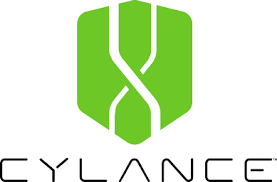
CylancePROTECT is an artificial intelligence-based endpoint protection solution designed to prevent advanced threats and malware attacks. It uses machine learning and algorithmic models to identify and stop threats before they can cause damage. Unlike traditional antivirus solutions, CylancePROTECT does not rely on signature-based detection, making it more effective against new and evolving threats. Additionally, the software has a lightweight agent that is easy to install and does not impact system performance. CylancePROTECT's intuitive interface allows administrators to manage the software effectively and quickly investigate any incidents. Overall, CylancePROTECT is a robust and efficient endpoint security solution suitable for businesses of all sizes.
Pros
Cons
Overall Rank
McAfee MVISION
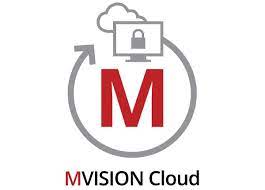
McAfee MVISION is a comprehensive cloud-native security platform that enables businesses to secure their digital assets in the cloud. The platform provides real-time threat detection, automated remediation, and centralized visibility across multiple clouds, including AWS, Azure, and Google Cloud Platform. MVISION's innovative technology integrates seamlessly with cloud infrastructure and DevOps pipelines, ensuring that security is built into every stage of the cloud lifecycle. Its dynamic workload protection feature secures workloads without slowing down the deployment process, while its Cloud Access Security Broker (CASB) capabilities help prevent data loss and enforce compliance policies. With MVISION, businesses can confidently embrace the cloud while maintaining control over their data and ensuring compliance with regulatory standards.
Pros
Cons
Overall Rank
IBM Watson for Cybersecurity
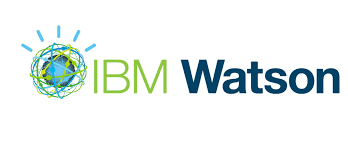
IBM Watson for Cybersecurity is an AI-powered solution designed to help organizations tackle the growing threats posed by cyber attacks. It leverages machine learning algorithms and natural language processing to analyze vast amounts of data, identify potential threats, and provide actionable insights to security teams. The solution can quickly detect and respond to sophisticated cyber threats, including malware, phishing attacks, and insider threats. Additionally, it can provide real-time alerts and notifications to security teams, allowing them to take immediate action to mitigate the risk of a potential breach. With IBM Watson for Cybersecurity, organizations can improve their overall security posture and ensure the safety of their sensitive data.
Pros
Cons
Overall Rank
Palo Alto Networks Cortex XDR

Palo Alto Networks Cortex XDR is an advanced threat detection and response platform that provides comprehensive visibility and protection across an organization's entire digital infrastructure. Cortex XDR operates by integrating endpoint, network, and cloud security data to identify and stop cyberattacks in real-time. This innovative platform leverages behavioral analytics and machine learning algorithms to automatically detect and respond to both known and unknown threats, enabling security teams to quickly identify and mitigate attacks before they can cause significant damage. With Cortex XDR, organizations can gain a holistic view of their security posture, reduce the time to detect and respond to threats, and improve overall security effectiveness.
Pros
Cons
Overall Rank
Fortinet FortiAI
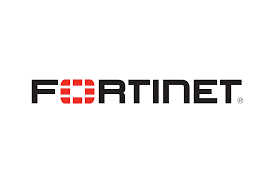
Fortinet FortiAI is an artificial intelligence-powered security solution that provides advanced threat detection and response capabilities to organizations. It utilizes machine learning algorithms to identify anomalous behavior and potential threats in real-time, enabling security teams to quickly respond and mitigate risks. FortiAI also offers automated incident response and can be integrated with other security solutions for enhanced visibility and control. With its ability to learn and adapt to new threats, FortiAI provides a proactive approach to cybersecurity, allowing organizations to stay ahead of potential attacks and protect their sensitive data.
Pros
Cons
Overall Rank
Symantec Endpoint Protection

Symantec Endpoint Protection is a comprehensive security solution that offers protection against a wide range of cyber threats. It uses advanced machine learning techniques to detect and block known and unknown malware and provides real-time threat intelligence to prevent cyberattacks. Its proactive defense mechanisms provide protection against zero-day attacks and other advanced persistent threats, while its centralized management console allows administrators to easily manage and monitor endpoints from a single location. Additionally, its endpoint detection and response capabilities allow for swift response to security incidents, reducing the potential damage caused by attacks.
Pros
Cons
Overall Rank
CrowdStrike Falcon

CrowdStrike Falcon is a cloud-based endpoint security platform designed to protect organizations from sophisticated cyber threats. It utilizes machine learning algorithms and artificial intelligence to detect and prevent advanced threats in real-time, providing unparalleled visibility and protection for endpoints. Falcon's lightweight agent runs seamlessly in the background, enabling fast and easy deployment across enterprise environments. It also offers a range of features, including threat intelligence, behavioral analytics, and automated response capabilities, all of which enable organizations to better defend against modern threats. With its comprehensive approach to endpoint security, Falcon is an excellent solution for businesses seeking a cutting-edge security platform.
Pros
Cons
Overall Rank
FireEye Helix
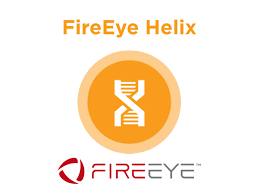
FireEye Helix is a cloud-based security operations platform that provides end-to-end threat intelligence and management solutions to organizations. It offers a centralized view of an organization's security posture, enabling security teams to detect, prioritize, and respond to threats efficiently. FireEye Helix uses advanced analytics and machine learning techniques to provide real-time threat intelligence and automated response capabilities. It integrates with various third-party security tools and leverages their data to provide comprehensive threat detection and response. Additionally, FireEye Helix provides a user-friendly dashboard that enables security teams to monitor their security posture and generate customized reports.
Pros
Cons
Overall Rank
Cisco Cognitive Threat Analytics

Cisco Cognitive Threat Analytics is a cloud-based cybersecurity solution that uses machine learning algorithms to detect and respond to potential security threats in real-time. By analyzing network traffic patterns and identifying anomalies, the platform can detect and prevent potential attacks before they can cause significant damage. The system also provides comprehensive threat intelligence reports and recommendations for mitigation strategies, enabling security teams to take proactive measures to protect their organizations from cyber threats. Furthermore, Cisco Cognitive Threat Analytics provides an intuitive interface that makes it easy to use and understand, even for non-technical users.
Pros
Cons
Overall Rank
Cybereason Deep Hunting Platform
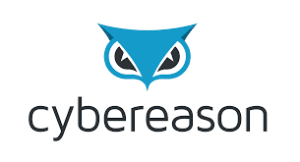
Cybereason Deep Hunting Platform is an advanced threat hunting tool that helps organizations proactively detect and respond to cyber threats. The platform uses machine learning algorithms to analyze data from various sources, including endpoints, network logs, and cloud environments, to identify suspicious activities and potential threats. It also provides real-time visibility into the entire IT environment and enables security analysts to investigate incidents quickly and efficiently. Additionally, Cybereason Deep Hunting Platform offers automated response capabilities that can help mitigate threats before they cause significant damage.
Pros
Cons
Overall Rank
Check Point SandBlast Agent

Check Point SandBlast Agent is an advanced endpoint security solution that provides real-time threat prevention, forensic analysis, and remediation capabilities. It uses multiple engines to detect and block known and unknown threats, including zero-day attacks, ransomware, and malware. SandBlast Agent also includes anti-phishing and anti-bot technologies to protect against social engineering attacks and unauthorized access attempts. Additionally, it provides granular control over network traffic and application usage, enabling IT administrators to enforce security policies and prevent data loss. SandBlast Agent is easy to deploy and manage, with a centralized console that provides visibility and control across all endpoints. Overall, SandBlast Agent is an effective and comprehensive solution for securing endpoints in today's threat landscape.
Pros
Cons
Overall Rank
Rapid7 InsightIDR

Rapid7 InsightIDR is a cloud-based security information and event management (SIEM) solution designed to help organizations detect and respond to threats quickly. The platform offers a wide range of capabilities, including log management, user and entity behavior analytics (UEBA), and endpoint detection and response (EDR), all of which can be accessed through a single dashboard. One of the key benefits of InsightIDR is its ability to use machine learning algorithms to identify anomalies and patterns that could indicate potential security incidents, giving security teams early warning of attacks. In addition, the platform offers a range of reporting and alerting options to help teams stay on top of emerging threats and take action as needed.
Pros
Cons
Overall Rank
Microsoft Azure Sentinel

Microsoft Azure Sentinel is a cloud-native security information and event management (SIEM) system that provides intelligent security analytics and threat intelligence across the enterprise. It helps organizations to detect, investigate, and respond to security threats with real-time visibility and deep insights into their entire IT environment. Azure Sentinel leverages machine learning algorithms and artificial intelligence (AI) to analyze large volumes of data from different sources, such as servers, applications, devices, and cloud services, to identify potential security incidents and provide proactive recommendations for remediation. Additionally, Azure Sentinel integrates with other Microsoft security services, such as Microsoft Defender for Endpoint, Microsoft Cloud App Security, and Microsoft 365 Defender, to provide end-to-end security coverage and a unified security platform for the organization.
Pros
Cons
Overall Rank
Splunk User Behavior Analytics
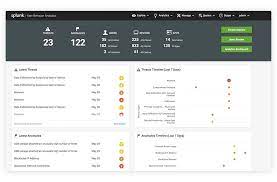
Splunk User Behavior Analytics (UBA) is a security-focused solution that leverages machine learning and advanced analytics to detect insider threats and other anomalies within an organization's network. UBA monitors user behavior across various endpoints, applications, and data sources to identify unusual activities, such as privilege escalations, data exfiltration, and account compromise attempts. With UBA, security teams can quickly detect and investigate security incidents, reduce the risk of data breaches, and comply with regulatory requirements. Moreover, Splunk UBA provides a user-friendly interface and customizable dashboards that enable security analysts to visualize security insights and prioritize their response accordingly.
Pros
Cons
Overall Rank
In conclusion, cybersecurity AI tools have become an essential component of any organization's cybersecurity strategy. With the ever-evolving threat landscape and the increasing sophistication of cyber attacks, traditional security measures alone are no longer sufficient. Cybersecurity AI tools provide organizations with the ability to detect and respond to threats in real-time, which is crucial in minimizing the damage caused by cyber attacks. There are several cybersecurity AI tools available in the market, each with its unique features and capabilities. Some of the best cybersecurity AI tools include Darktrace, IBM Watson, and McAfee. These tools offer advanced threat detection and prevention capabilities, leveraging machine learning and other AI techniques to identify and respond to threats quickly. As AI continues to evolve and improve, we can expect cybersecurity AI tools to become even more sophisticated and effective. Organizations that invest in these tools and integrate them into their cybersecurity strategy will be better equipped to protect their valuable assets and data from cyber attacks. Ultimately, cybersecurity AI tools play a crucial role in ensuring the security and resilience of our digital infrastructure, and their importance is only set to grow in the years to come.
